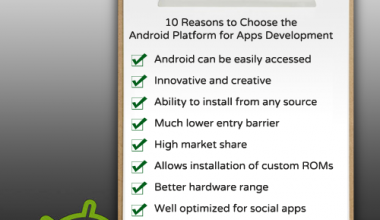
Having a mobile app is essential for business and online stores in the rapidly growing e-commerce industry. E-commerce is becoming more mobile in the age of digital technology, customers are becoming mobile users, and consumers are now investing more and more time on large and small online E-Commerce Mobile App Development. In the next few years, this growth will accelerate.
Neither is the ecommerce industry any different. Nevertheless, creating an app from scratch is an expensive affair for online marketplaces running minor companies and startups.
An alternative approach we suggest to our customers who want to create an app for mobile commerce is to leverage their existing websites for ecommerce. The latter significantly reduces the Cost to Develop Ecommerce Mobile App like Amazon, Flipkart, Walmart, and Myntra. It also takes less time to market ecommerce apps derived from functional websites.
Why your Business need an e-commerce application?
There are many reasons why e-business should be allowed to release your own mobile app.
Close Contact with The Store between the Customers: For ecommerce shops with interesting notifications (new offers, exclusive products, personal sales, special promotions, etc.) direct contact with prospects is very useful.
Provide Appealing and Tailored Quotations: Increasing customer loyalty to your brand requires great mobile applications and enhanced interaction with users.
Attractive Content and Ergonomic: The mobile app for e-commerce will supplement your online store with quicker content, regular updates and a more interactive way to shop.
Strategy for Sales at Low Cost: Mobile advertising will help all companies boost their brand image and brand image without spending a lot of money on their products and services.
Your Prospects Are Better Identified: Customers who are interested in the offer are those who are tempted to purchase. To do this, you need to update your mobile app’s content periodically to make it compelling and engaging.
A Traditional Product Identity to Meet the Expectations of the Consumer: Telecommunications games have changed with the advent of social networks and mobile apps. In creating a modern brand, while adapting to the new needs of consumers, it was necessary to adapt to trends.
Sales and Stimulation of Import: Sales will naturally take off thanks to a custom buying experience, direct contact with consumers and the exclusive content of the offer.
Why should I choose to sell through the app?
In the present world, despite the fact that mobile apps allow more than a third of online shopping, very few e-commerce sites maintain their own ecommerce apps. E-commerce today requires a mobile app to drive sales and deliver the best user experience. In a world of over 4 billion internet users (including 32 billion social network users), people from all walks of life are vying to harness this enormous potential. With the rapid emergence of new technologies, trends in consumer purchasing today are rapidly changing. In online stores, mobile apps are becoming more prominent. Whether it is a clothing store, a lifestyle store or a toy retailer, customers want to shop at their fingertips so that you can do it in the application.
Consumers around the world now prefer to use applications (47%) compared to mobile websites (20%) or desktop websites (33%), according to a recent study. When you know that apps produce 70% of today’s revenue and conversion levels are three times higher than when you use blogs, today’s mobile apps cannot rob you of great potential.
How much does it cost to build an e-commerce mobile app?
You need to recruit a developer and identify your plan before you start developing your mobile app and calculate Cost to Create E-Commerce Mobile App. To do this, it is necessary to consider multiple variables in order to arrive at a reasonable estimate. It depends on the difficulty, attributes, support, etc. But at the development stage, the price of mobile apps does not end. There are likely to be other expenses.
Many parameters affect the price: Many variables affect the Cost to Build E-Commerce Mobile App. They should be included in the app specification in order for the designer to grasp the specifications correctly and prevent unpleasant surprises.
The criteria that affect development costs are: You can use an expert in the field or a professional web agent. Prices vary depending on the service offered, the reputation of the market, and the performance of each provider.
Project Complexity: It takes longer to deploy applications with many features and multiple screens because they are more complex than simple applications to implement.
Additional charges: Promotion and repair of the software is considered an optional fee. Keeping the program going is the basis.
Platform: Whether applications for iOS or Android, each platform works differently, making the price reasonable. You must therefore select a platform to satisfy your target audience. The price will be higher if you decide to develop your application on multiple platforms.
Features: Ecommerce Mobile app development cost like Souq, Walmart, ebay, Groupon, Grofers, H&M, Paytm depend on the software and the incorporated features. The more the quantity, the higher the price and each function requires a certain amount of development time. If something seems easy to make, it takes more energy, more time, and so on from other aspects.
Wide price range: The price range depends on the application type. A simple application’s average price ranges from $10,000 to $15,000. Prices range from $15,000 to $30,000 for more complex requests.
Development time can exceed tens of months in very complex applications, and development cost rises from $30,000 to over $100,000.
The more complicated the software, the longer it takes for the application to be implemented and the higher the cost. Regardless of the type of software you use, the features of your Android application should be carefully selected from the beginning to promote the developer’s work and best suited to you and your customer needs.
E-Commerce App: The mobile application development is a crucial step in the development of e-commerce. Online stores aim to provide the best user experience in order to gain an edge over the competition and maximize sales. Mobile apps not only build marketing strategies, but also improve the company identity and retain customers. The mobile app for e-commerce is an outstanding loyalty device that can encourage more shopping while enhancing the customer experience significantly.
Features of mobile commerce apps
Below is a collection of functionality required that is for the E-Commerce Mobile App Development. Such features are necessary for a minimally viable product, meaning that your application will fail without any of these features.
- Authorization
To order to make transactions on the ecommerce platform, a user must authorize himself on the device. Everyday authorization is typically performed via the client-server API via direct interaction. On the other hand, social logins use an authentication protocol such as oAuth.
- Setting and push notification
On all major platforms, push notification services are available. For iOS and Android respectively, they have APN (Apple Push Notification) and GCM (Google Cloud Messaging). Using the client-server API, settings are tuned.
- Catalogue with categories:
Every item listed on an app for ecommerce has a specific database ID. These also have names, prices and information. Therefore, every class has a unique identifier.
- Different payment methods :
Stripe and Braintree are the two most common Payment Gateways supporting several payment methods, including Apple Pay, Google Pay and Mobile Wallet App like Phonepe. Western users of the mobile business app want PayPal and support for common types of credit cards: Visa, AMEX, Mastercard and Discover. Asian users are accustomed to a payment feature called Cash on Delivery.
- Tracking purchase
Order monitoring helps users to check an order’s status. Ecommerce apps also have a feature in place to uninstall it early. SMS usability allows consumers to be alerted when receiving, handling, and distributing, etc. path.
- Shopping cart
A shopping cart is important for e-commerce applications to work. Sometimes users add items to the app and checkout from the website in their cart, so take a cue.
- Customer support
Customer support is important via email, online chat, telephone. Popular ecommerce app let a service representative send their customers a callback.
Adapting a Mobile Commerce App from an Ecommerce Website
A standardized process guarantees that, at the time of launch, the resulting app is not only prepared for timely evaluation but also has zero bugs. In this scenario, the same server will be used by the ecommerce website and related mobile ecommerce applications. Only the data delivery can differ between the website and the mobile commerce app.
- Platform Identification
There are many ecommerce solutions available from full-fledged enterprise content management systems such as Magneto to Word Press plugin such as Woo Commerce to create websites on the market. It is important to identify the platform when building an app from a website made from one of these platforms.
The results of this classification will determine the fate of the design of the application that will follow. The process for OpenCart, for example, is much simpler, but a bit tedious for Magento.
- Building Consistent Look And Feel
Because we leverage that customers are used to on an existing ecommerce website, it will be a clever move to retain the familiar look across the entire website and mobile app ecosystem.
Therefore, retaining this look and feeling across the board is important. Also a consistent look is important for the purpose of branding. The view of the app will show the website’s view all the time and vice versa.
- API Development
A CMS is a closed code system framework that enables the development of a website. Magento is one such CMS that makes’ web development of ecommerce’ easier and deeper. Since all the components of the software: framework, web server, database and frontend are part of the same system, they can easily share information. As such, the all components handles by the same party, there is no security risk.
- API Integration
In order for the app to work efficiently, tight integration of APIs and application views is necessary. The view provides tons of product information. Static data sticks to the website and then the API retrieves dynamic information from the server. Product prices are subject to change, for instance, and the client will remove the product from the cloud before displaying it to the consumer.
Robust integration of the API also makes both the database and the devices of the users safe. The information from your phone and the server work in isolation. Instead, each interacts with small data packets, exchanging only what is needed like the current price.
- Testing
Testing is an integral part of the post-development phase of an application. Likewise, different parameters will be test for a mobile ecommerce app. The performance management group ensures that the software complies with the criterion of the consumer or a standard quality variable such as ISO 9001.
There is also a lot of manual testing where, if detected, a qualified tester uses the software like any user does and fixes every error.
- Deployment
After public testing, a value mobile ecommerce app is submitted for distribution to an Application Store. In particular, Apple App Store and Google Play Store are the app stores. There are a number of 3rd party app stores, though.
Mobile apps therefore bring many benefits to a dynamic website. There are reasons why people switch to a strategy for the mobile app. Over the website, ecommerce vendors focus on the demand.
KEY TAKEAWAY
This is the time for every business who want turn their business in to mobile app by hiring ,Top Mobile App Development Company, in Bangalore, Ahmedabad, Mumbai, Noida, Delhi and Gurugram, India, San Francisco, USA, Dubai, UAE, South Africa. There is no point denying it, but mobile apps have conquered the entire world and the hearts of people. Each business and organization will have their own app with the same or even better features as their websites in a few years.




